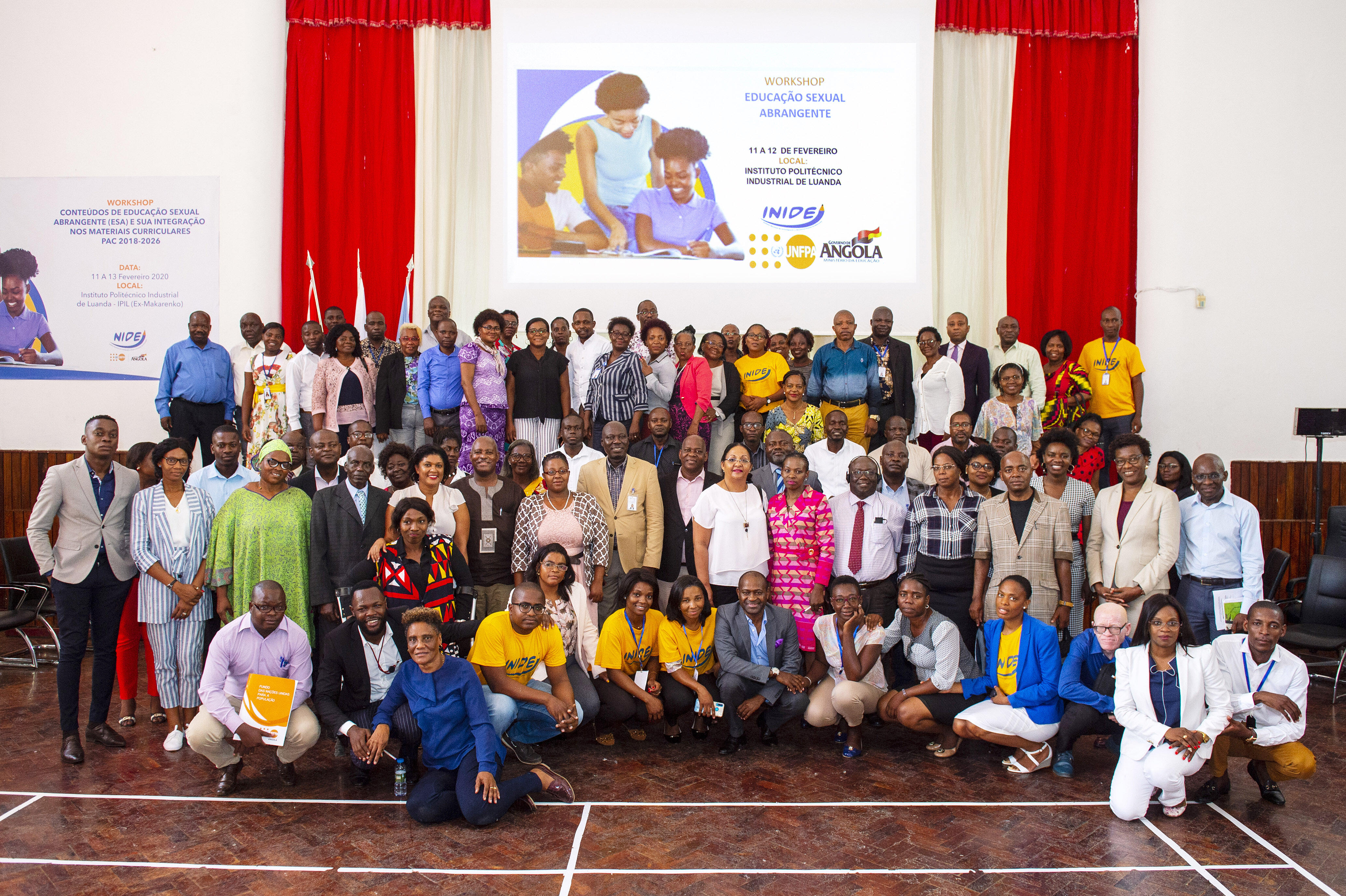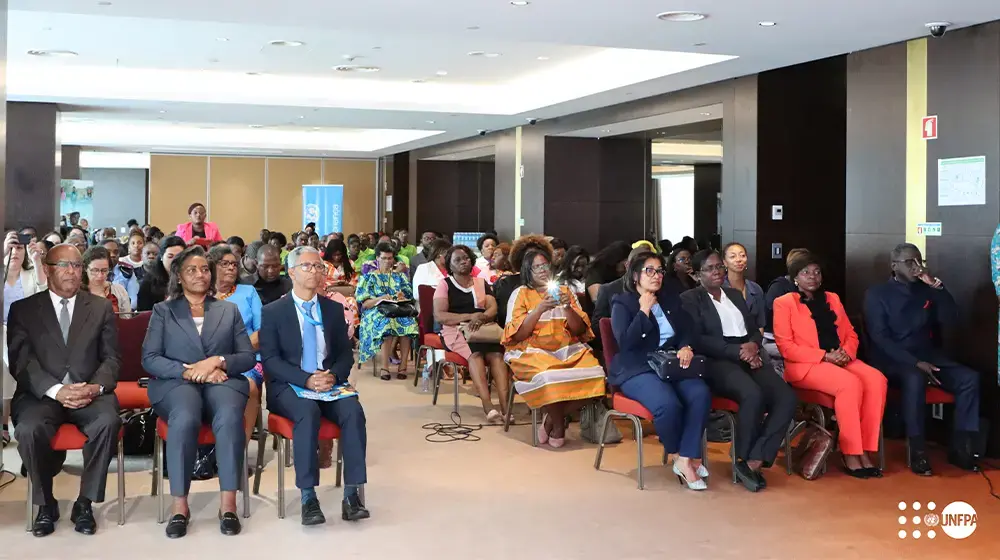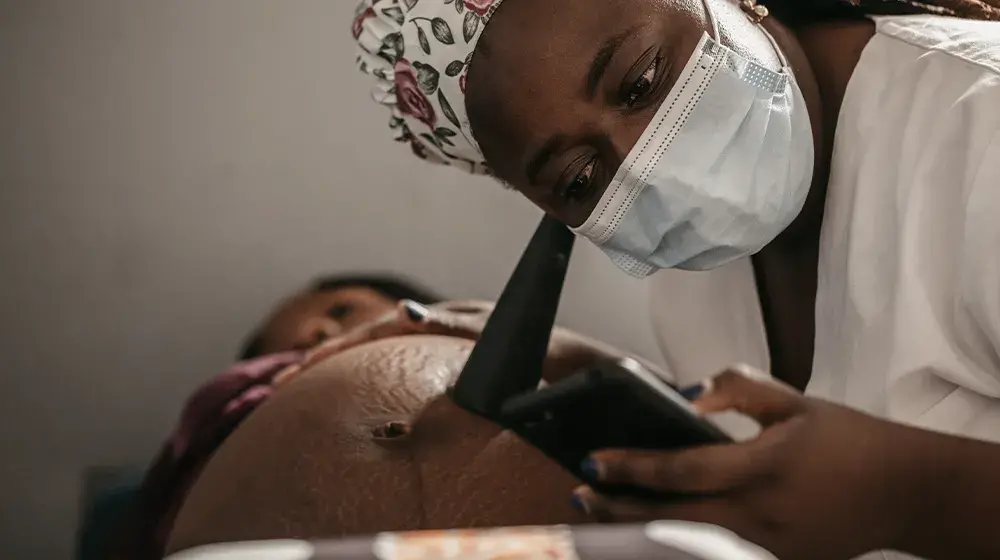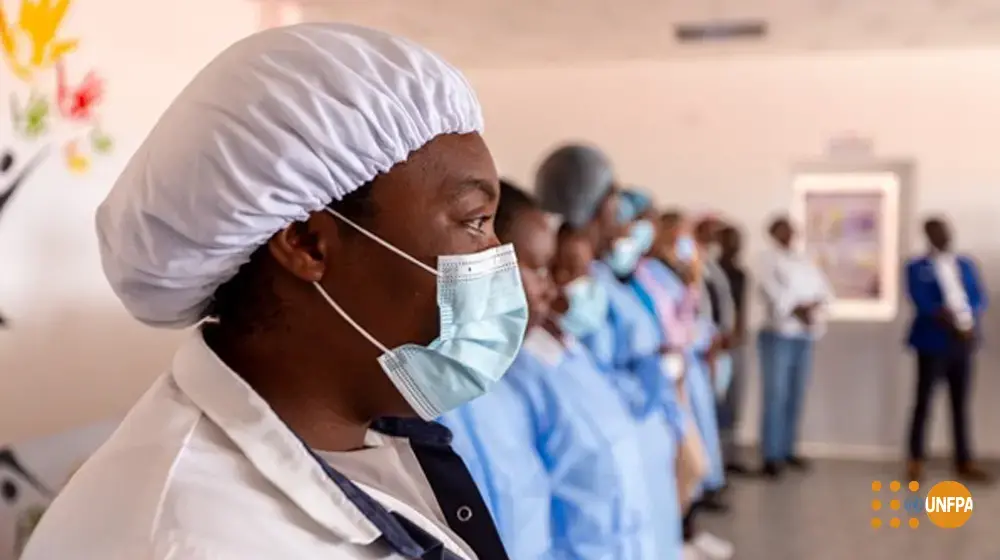The Ministry of Education, through the National Institute for Education Research and Development (INIDE), in partnership with the United Nations Population Fund (UNFPA), held from 11 to 12 February, in Luanda, an International Workshop on Comprehensive Sexual Education and its Integration into Curricular Materials, within the scope of the Curriculum Adequacy Program for the period 2018-2026.
Experts from Lesotho, Mozambique and Namibia were invited to share their countries' experiences regarding the process of including CSE content in school curricula, with 70 participants including curriculum authors, teachers, government representatives of the Ministries of Youth, Health, Social Action, Family and Women's Promotion and partners of Civil Society Organizations.
The opening words spoken by the Secretary of State for Pre-school and General Education, Dr. Pacheco Francisco, highlighted that the provision of quality education for all constitutes the main challenge that emerges from the implementation of the programs of the National Development Plan 2018-2022.
During the two day event, the progress made by Angola within the scope of the Inter-ministerial Commitment of Eastern and Southern Africa on CSE, signed in 2013 by 21 countries in the region, was discussed, in addition to the sharing of lessons learnt and success stories regarding the inclusion of CSE into national curriculums.
Progress and barriers that have been faced in these countries in order to ensure the rights of young people to have reliable and quality information on sexual and reproductive health in schools were addressed. Through collaborative working meetings with INIDE technicians, the group of visitors supported the elaboration of an action plan for the implementation of CSE in school curricula, taking into account the context of Angola.
According to the Namibian expert, Julius Natangwe Nghifikwa, Deputy-Director (HIV/AIDS Management Unit)Ministry of Education, Arts and Culture: “the sharing of knowledge between the different countries is a very important initiative carried out with the support of UNFPA and we are fully available to provide the necessary support to Angola”.
Research shows that curriculum programs that include Comprehensive Sexual Education can help young people not only increases youth knowledge on how to protect their health, but leads to the refrain from or delay of sexual intercourse, reduces the number of partners and the frequency of sexual activity without protection, in turn, increasing protection against early pregnancy, sexually transmitted infections and HIV / AIDS. For girls, the impact is even greater, increased knowledge on SRH through CSE leads to decreased school dropouts decreased maternal deaths of young women and lower infant mortality.
UNFPA is committed to support the Ministry of Education and partners in fulfilling the East and Southern Africa Inter-Ministerial Commitment on Comprehensive Sexual Education and in accelerating national, regional and international priorities for adolescents and young people to ensure a world where every pregnancy is wanted, every childbirth is safe and every young person's potential is fulfilled.





